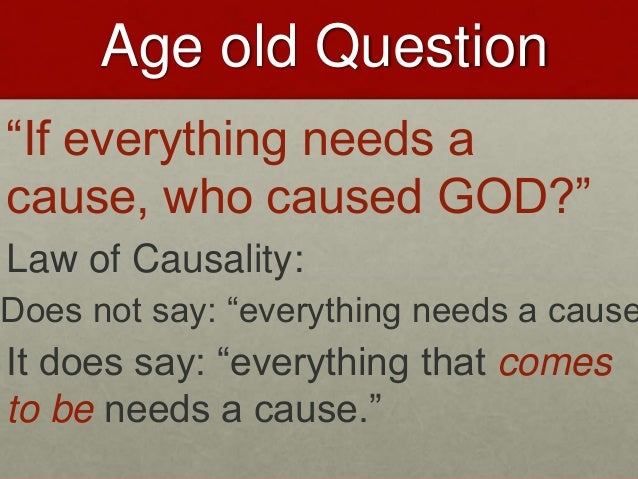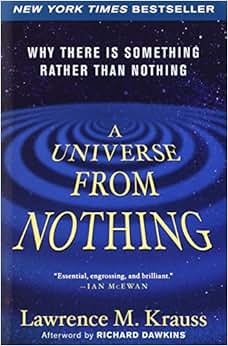Question: If everything has a cause, then what caused God?
Atheists like to present their objection to Theistic arguments for God's existence in this way:
Today's argument: But All of This Had to Come From Somewhere! Otherwise known as the "First Cause" argument. "Things don't just come out of nowhere," the argument goes. "Everything that exists has a cause. Therefore, the entirety of physical existence itself had to have had a cause. Therefore, God exists."Yeah. See, there are some big problems with that argument.For starters: If everything has to have a cause...then what caused God?And if God can somehow have always existed or come into being out of nothing...then why can't that be true of the universe?
Answer: The error lies in the bolded statements above. Theists don't argue "Everything that exists has a cause".
Rather, our argument is this: "Whatever begins to exist needs a cause".

If something began, then we need an explanation for what caused its existence. (But if something is eternal, then logic tells us that it doesn't need a cause. And that's why we don't have to give an explanation for what caused God. God is eternal and therefore doesn't need a cause.)
Thus, if the universe began to exist, then common sense tells us it needs a cause.
And that cause is God.
Some atheists may try to argue that the universe may have always existed--that is, it's eternal. However, the scientific community is almost unanimous in agreeing that the universe began to exist. The most accepted theory for how the universe began to exist is the Big Bang, which postulates that the universe is expanding and had a beginning in the finite past, about 14 billion years ago.
Not only is the science pretty firm on the universe beginning to exist (as opposed to always existing), philosophy and logic tells us that the universe cannot be eternal. If the universe is eternal, and the past is infinite, we could never traverse to the point of the present. That is, if there's an infinite number of days in the past, we can never get to today. As the 18th century Scottish Philosopher David Hume said: "An infinite number of real parts of time, passing in succession, and exhausted one after another, appears so evident a contradiction, that no man, one should think, whose judgment is not corrupted, instead of being improved, by the sciences, would ever be able to admit it."
Finally, it should be pointed out that Theists have a incontrovertible argument when we point out: "Something" can't come from "nothing". The universe is "something", and it requires an explanation--it didn't just pop up, magically, out of nothing of its own power. In fact, atheist Richard Dawkins called it our trump card: “Even the last remaining trump card of the theologian, ‘Why is there something rather than nothing?,’ shrivels up before your eyes as you read these pages."
(Dawkins was writing an afterword for a book by a scientist named Lawrence Krauss called "A Universe from Nothing" in which Krauss claimed to have created "something" out of "nothing" in a laboratory setting. Krauss claims that he was able to recreate particles coming to exist out of nothing.)

Except, it turns out, that Krauss redefines "nothing" to be a low level quantum field of energy.
Reminds me of the joke:
God was once approached by a scientist who said, “Listen God, we’ve decided we don’t need you anymore. These days we can clone people, transplant organs and do all sorts of things that used to be considered miraculous.”God replied, “Don’t need me huh? How about we put your theory to the test. Why don’t we have a competition to see who can make a human being, say, a male human being.”The scientist agrees, so God declares they should do it like he did in the good old days when he created Adam.“Fine” says the scientist as he bends down to scoop up a handful of dirt.”“Whoa!” says God, shaking his head in disapproval. “Not so fast. You get your own dirt.”

